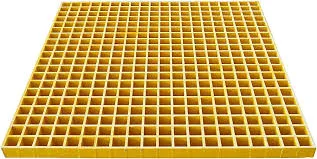
-
 Afrikaans
Afrikaans -
 Albanian
Albanian -
 Amharic
Amharic -
 Arabic
Arabic -
 Armenian
Armenian -
 Azerbaijani
Azerbaijani -
 Basque
Basque -
 Belarusian
Belarusian -
 Bengali
Bengali -
 Bosnian
Bosnian -
 Bulgarian
Bulgarian -
 Catalan
Catalan -
 Cebuano
Cebuano -
 China
China -
 China (Taiwan)
China (Taiwan) -
 Corsican
Corsican -
 Croatian
Croatian -
 Czech
Czech -
 Danish
Danish -
 Dutch
Dutch -
 English
English -
 Esperanto
Esperanto -
 Estonian
Estonian -
 Finnish
Finnish -
 French
French -
 Frisian
Frisian -
 Galician
Galician -
 Georgian
Georgian -
 German
German -
 Greek
Greek -
 Gujarati
Gujarati -
 Haitian Creole
Haitian Creole -
 hausa
hausa -
 hawaiian
hawaiian -
 Hebrew
Hebrew -
 Hindi
Hindi -
 Miao
Miao -
 Hungarian
Hungarian -
 Icelandic
Icelandic -
 igbo
igbo -
 Indonesian
Indonesian -
 irish
irish -
 Italian
Italian -
 Japanese
Japanese -
 Javanese
Javanese -
 Kannada
Kannada -
 kazakh
kazakh -
 Khmer
Khmer -
 Rwandese
Rwandese -
 Korean
Korean -
 Kurdish
Kurdish -
 Kyrgyz
Kyrgyz -
 Lao
Lao -
 Latin
Latin -
 Latvian
Latvian -
 Lithuanian
Lithuanian -
 Luxembourgish
Luxembourgish -
 Macedonian
Macedonian -
 Malgashi
Malgashi -
 Malay
Malay -
 Malayalam
Malayalam -
 Maltese
Maltese -
 Maori
Maori -
 Marathi
Marathi -
 Mongolian
Mongolian -
 Myanmar
Myanmar -
 Nepali
Nepali -
 Norwegian
Norwegian -
 Norwegian
Norwegian -
 Occitan
Occitan -
 Pashto
Pashto -
 Persian
Persian -
 Polish
Polish -
 Portuguese
Portuguese -
 Punjabi
Punjabi -
 Romanian
Romanian -
 Russian
Russian -
 Samoan
Samoan -
 Scottish Gaelic
Scottish Gaelic -
 Serbian
Serbian -
 Sesotho
Sesotho -
 Shona
Shona -
 Sindhi
Sindhi -
 Sinhala
Sinhala -
 Slovak
Slovak -
 Slovenian
Slovenian -
 Somali
Somali -
 Spanish
Spanish -
 Sundanese
Sundanese -
 Swahili
Swahili -
 Swedish
Swedish -
 Tagalog
Tagalog -
 Tajik
Tajik -
 Tamil
Tamil -
 Tatar
Tatar -
 Telugu
Telugu -
 Thai
Thai -
 Turkish
Turkish -
 Turkmen
Turkmen -
 Ukrainian
Ukrainian -
 Urdu
Urdu -
 Uighur
Uighur -
 Uzbek
Uzbek -
 Vietnamese
Vietnamese -
 Welsh
Welsh -
 Bantu
Bantu -
 Yiddish
Yiddish -
 Yoruba
Yoruba -
 Zulu
Zulu
rectangular tank made of fiberglass material
The Benefits of Using Fiberglass for Rectangular Tanks
In the world of industrial storage solutions, the choice of materials plays a crucial role in determining the efficiency, longevity, and safety of the structures involved. Among the various materials available, fiberglass has emerged as a preferred choice for constructing rectangular tanks. This article explores the numerous advantages of fiberglass tanks, highlighting their structural integrity, cost-effectiveness, and environmental impact.
Structural Integrity and Durability
Fiberglass, known for its remarkable strength-to-weight ratio, offers superior structural integrity compared to traditional materials such as steel or concrete. Rectangular tanks made of fiberglass are designed to withstand various external pressures and environmental conditions. The composite material is resistant to corrosion, which is a significant advantage when storing chemicals or other hazardous substances. Unlike metal tanks that may rust over time or concrete tanks that can crack, fiberglass tanks maintain their structural integrity, reducing the need for frequent repairs or replacements.
Moreover, the lightweight nature of fiberglass allows for easier installation and transportation. Traditional materials often require heavy machinery and extensive labor for setup, while fiberglass tanks can be easily maneuvered and installed with minimal workforce, thereby lowering labor costs and project timelines.
Cost-Effectiveness
One of the compelling reasons for using fiberglass in tank construction is its cost-effectiveness. Although fiberglass tanks can have a higher upfront cost when compared to alternatives like plastic or metal, their long-term savings make them a wise investment. The longevity of fiberglass significantly reduces replacement costs. Additionally, their low maintenance requirements contribute to savings over time, as operators do not need to allocate extensive budgets for upkeep.
Energy efficiency in production and installation also plays a role in the overall cost savings. Fiberglass manufacturing processes have evolved, allowing for reduced energy consumption compared to traditional materials. Moreover, the lightweight nature of fiberglass means that transportation costs are significantly lower than those associated with heavier materials.
rectangular tank made of fiberglass material

Environmental Impact
With growing concerns over environmental protection and sustainability, choosing the right materials has never been more critical. Fiberglass is increasingly recognized for its environmental advantages. The production of fiberglass tanks often involves less energy and fewer harmful emissions compared to metals or concrete, making them a more sustainable choice. Additionally, fiberglass can be recycled, and advancements in technology continue to improve recycling methods, further minimizing the environmental footprint.
The impact on the ecosystem is another vital consideration. Fiberglass tanks can be designed to be sealed and leak-proof, preventing contaminants from escaping into the surrounding environment. This aspect is particularly crucial in industries where hazardous materials are stored, ensuring compliance with environmental regulations and protecting local ecosystems.
Versatility and Customization
Fiberglass rectangular tanks are incredibly versatile and can be customized to meet various specifications and requirements. Industries ranging from agriculture to wastewater treatment can benefit from tailored solutions, making fiberglass an ideal choice for various applications. Whether it’s for storing water, chemicals, or food products, fiberglass tanks can be designed to meet the storage requirements precisely.
Customization extends beyond size and shape; fiberglass can also be engineered to provide specific thermal or chemical resistance properties. This flexibility ensures these tanks can perform reliably across a broad spectrum of industries and conditions.
Conclusion
In summary, the use of fiberglass for constructing rectangular tanks presents a multitude of benefits. With their exceptional structural integrity, reduced maintenance costs, and positive environmental footprint, fiberglass tanks are an ideal choice for a wide range of applications. As industries continue to prioritize sustainable and cost-effective solutions, fiberglass is likely to play an increasingly significant role in the future of storage solutions. Embracing such advancements not only enhances operational efficiency but also contributes to a more sustainable approach to industrial practices. Thus, it is clear that fiberglass is more than just a material; it is a stepping stone towards innovative and responsible storage solutions.









